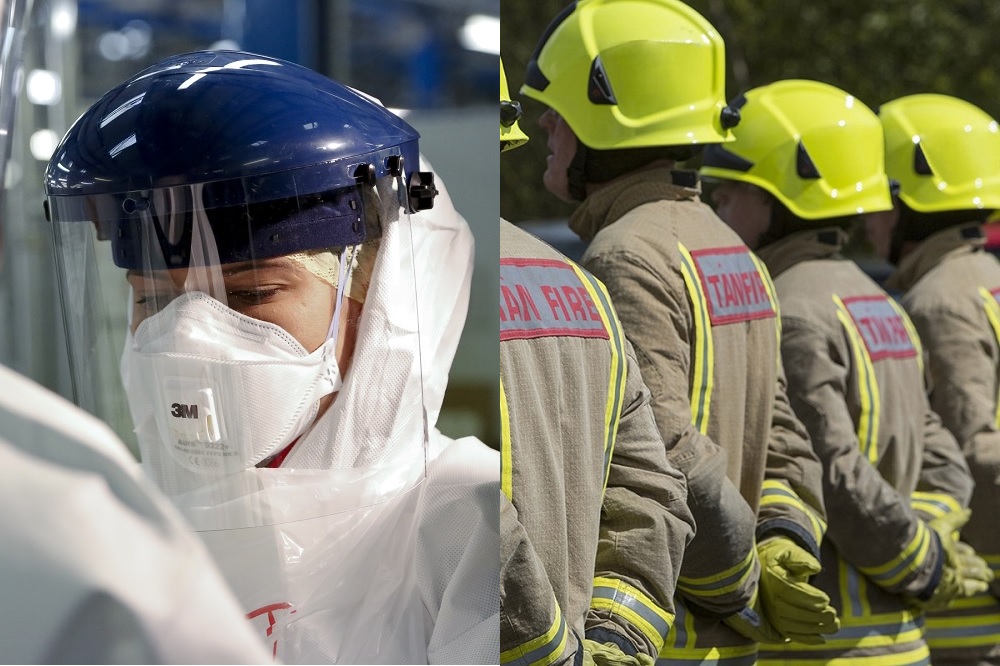Omicron: 10% of NHS staff and firefighters in the north of Wales off work

Richard Evans, local democracy reporter
10% of North Wales’ NHS staff and fire-fighters are unavailable for work, mainly due to the rapid spread of the omicron variant.
Over 600 Betsi Cadwaladr University Health Board staff are currently off work with Covid-related issues, either because they are sick or self-isolating.
Meanwhile, North Wales Fire Service has said it struggled over the festive period with 12% of staff missing from work, a figure which has now reduced to 10%. The ambulance service has also recruited an additional 150 military personnel this month to bolster its numbers.
Sue Green, Betsi Cadwaladr executive director of workforce and organisational development, said: “At the moment we have more than 600 people off work due to Covid-related issues, which equates to almost 4% of our workforce. In total around 10% of our workforce is unavailable for duty, which could also point to the increased pressures everyone has had to face throughout the pandemic.
“Staffing levels are a cause for concern, but we are covering services through a mixture of staff working overtime, bank and agency cover. We are immensely grateful for the dedication of our staff, who have postponed leave and are working additional hours to ensure we are able to continue to deliver patient services.”
The health board said patients can help ease the strain by getting their booster shots and only accessing emergency treatment when appropriate. The NHS advises that minor injuries and illnesses can be treated at local pharmacies, minor injuries units or by accessing the NHS’ 111 symptom checker.
‘Merging’
North Wales Fire Service’s assistant chief Richard Fairhead painted a similar picture.
“The situation has improved slightly compared to last week when we had approximately 12% of our staff absent due to Covid – that has now reduced to 10%. However, we are acutely conscious that infection rates remain high and are continuing to prepare for absences and to work with our fire stations to maintain operational crewing,” he said.
“We have been able to continue delivering the same operational service as usual thanks to the exceptional efforts of our staff and have not resorted to merging departments or sharing resources.”
The Welsh Ambulance is under similar pressure. Lee Brooks, director of operations, said: “Our rates of absence associated with Covid tend to mirror what we see in the community, so at the moment, the numbers of staff unable to attend work has been steadily increasing.
“The trust has re-enlisted the military to bolster our capacity, a result of which we’ve been able to put more ambulances on duty so we can get to more patients, more quickly, while the extreme pressures continue.
“More than 100 soldiers, sailors and aircrew have been supporting us since October, and from this month, a further 150 will join us until the end of March, totalling 250 Armed Forces personnel.”
North Wales Police commented: “For operational reasons, we don’t comment on staffing levels or abstraction rates for officers and staff.”
Support our Nation today
For the price of a cup of coffee a month you can help us create an independent, not-for-profit, national news service for the people of Wales, by the people of Wales.







This is how a pandemic can ruin a country, and not the “mild effects” that some people post about.
Drakeford is also ruining the country with his dogmatic “momentum” diatribe
It is mild in most cases.I have seen it with my own eyes.